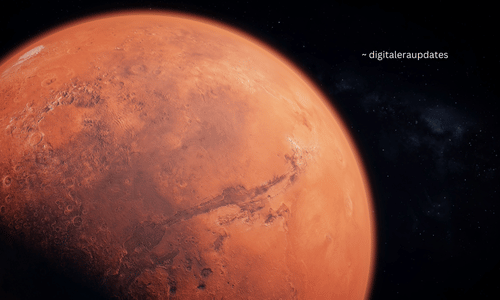Science fiction fans often imagine humans colonizing other celestial bodies such as Mars. Yet is Mars really our only viable option for human habitation outside Earth? NASA and other space agencies have conducted extensive studies into this question of colonizing planets beyond our solar system with humans residing. Let’s investigate current understanding and future prospects regarding human colonization on planets or moons beyond Earth.
Mars Is an Appealing Candidate for Human Colonization
For good reasons, Mars has often been considered as the ideal site for human colonization.

- Proximity and Similarities to Earth: Mars’ proximity makes it an accessible target for scientific exploration, making its exploration feasible and interesting. Martian days (sol) have similar duration to our days here on Earth, while its surface features like valleys and polar ice caps reflect Earth-like features in appearance.
- Challenges: Mars stands in stark contrast to Earth in many respects; its thin atmosphere creates extreme temperature swings between -70 and 0 degC (-94 to 32 degF) that cause severe temperature variations on the planet itself, along with being bombarded by radiation that emits heavy doses, bombarded by particles of fine dust covering its surface, heavy radiation bombardments and an environment covered with toxic dust particles – conditions far removed from those on Earth.
- Natural Resources: Mars boasts valuable natural resources such as subsurface water, minerals and Martian soil that could potentially be utilized for construction and agriculture purposes. In addition, nuclear, solar and wind power generation could potentially produce electricity; although such efforts present unique set of challenges.
- NASA Perspective: NASA scientists suggest that Mars presents less challenges compared to other planets, particularly with producing oxygen from carbon dioxide for human use on Mars. Notable among Elon Musk’s ambitious plans for Mars settlement is his plan of setting up human colonies there.
- Mission Plans: Many government and private organizations have developed mission plans for human missions to Mars. Although their primary goal (planned by entities such as NASA, Roscosmos, and ESA) may be exploration rather than colonization in the short-term future; creating permanent bases may remain as long-term goal(s).
Since Mars is currently the leading candidate, other celestial bodies are being considered for potential habitability:
- Venus: Once considered Earth’s twin planet, Venus now presents uninhabitable conditions characterized by extreme surface temperatures capable of melting lead and an atmospheric pressure that exceeds 90 times that found here on Earth. However, some scientists speculate that by somehow cooling Venus more effectively it might once more become habitable.
- Titan (Saturn’s Moon): Titan has an expansive atmosphere and surface lakes of methane and ethane that are similar to Earth in climate and structure, though extremely cold; hence making Titan an attractive option for potential human habitation research purposes.
- Ganymede (Jupiter’s Moon): Ganymede is Jupiter’s moon and features a magnetic field, raising speculation of habitability due to subsurface ocean. However, due to being far away from its star source it experiences extremely low temperatures despite having life.
Conclusion
Mars remains the ideal target for human colonization due to its closeness and resource availability; however, its isolation poses significant difficulties for colonists. Other celestial bodies such as Venus, Titan and Ganymede may present even greater difficulties for living on. Regardless of these potential barriers to human habitation being present elsewhere in space – NASA continues exploring all such possibilities with an eye toward expanding human presence beyond Earth.
Future Prospects
Human colonization of space depends on meeting numerous technological and environmental challenges. As we continue exploring and comprehending distant worlds, becoming multi-planetary species remains at the core of space exploration – whether Mars becomes our second home or not; its pursuit is emblematic of humanity’s persevering quest to remain alive while uncovering truth and beauty in this universe.
